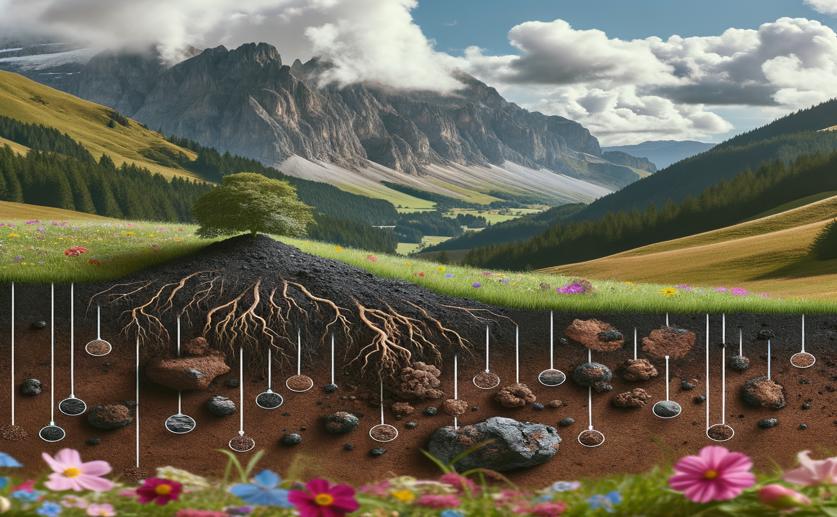
Soil Carbon Loss in Alpine Meadows Driven by Organic Matter Breakdown
Greg Howard
8th August, 2024

Image Source: Natural Science News, 2024
Key Findings
- The study took place in the alpine meadows of the Qinghai–Tibet Plateau, a crucial area for global carbon sequestration
- Grazing increases the activity of soil microorganisms, especially Acidobacteria, which accelerates the decomposition of organic matter and releases soil carbon
- Implementing grazing bans or light grazing practices can slow down soil organic matter decomposition and enhance soil carbon sequestration
References
Main Study
1) Bacteria-Like Gaiella Accelerate Soil Carbon Loss by Decomposing Organic Matter of Grazing Soils in Alpine Meadows on the Qinghai–Tibet Plateau
Published 7th August, 2024
https://doi.org/10.1007/s00248-024-02414-y
Related Studies
2) Applying population and community ecology theory to advance understanding of belowground biogeochemistry.
3) Evolutionary ecology of plant-microbe interactions: soil microbial structure alters selection on plant traits.
4) Grassland soil carbon sequestration: Current understanding, challenges, and solutions.



 9th July, 2024 | Jenn Hoskins
9th July, 2024 | Jenn Hoskins